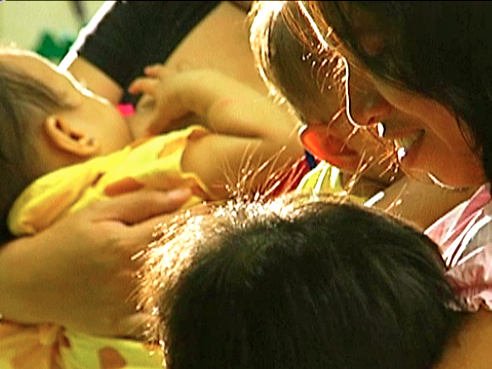How some Filipinos use 'diskarte' to keep from going hungry
What are you willing to do in order to earn and survive? During the first quarter of 2012, unemployment hit a record high in the Philippines, where joblessness is said to be most severe than anywhere else in Asia. This is supported by a Social Weather Stations survey conducted in March, revealing a 34.4% unemployment rate. Survey says, almost 13.8million Filipinos declared themselves jobless during the first three months of 2012. Filipinos, however, are said to possess a character that enables him to survive despite all odds – diskarte. It came from the Spanish word ‘descarte’, or to discard, but the meaning somehow morphed through the centuries. ‘Diskarte’ is defined as one’s strategy or plan of action to be able to come out successful or to be able to accomplish a task. Some Filipinos refuse to bow down to this massive unemployment crisis and instead let their ‘diskarte’ drive their fates. ‘I Juander’, a magazine show that tackles Filipino culture and behavior, listed down some interesting ways that some of our countrymen earn a living. These jobs do not require school diplomas and prior experience, just a strong gut and a great need to earn. In Brgy San Jose, Pampanga, Angelina has a unique job – picking lice! Known in the area as the ‘kuto (lice) hunter’, she gets to charge 20 pesos per head. A widow for 11 years, lice-picking is her main source of income. She accepts three customers per sitting and takes in laundry on the side. The lice-picker’s advice, don’t be picky when it comes to earning money. Mang Donato, a janitor, has an odd job that could rival Angelina’s. Aside from scrubbing floors, he catches frogs, worms, cockroaches, and lizards! He sells these creatures to students who need to dissect them for their biology classes. A worm costs 4 pesos each, a cockroach costs 20 pesos, a lizard costs 30 pesos, while he charges 40 pesos per frog. Mang Donato earns 350 pesos a week for this sideline.





